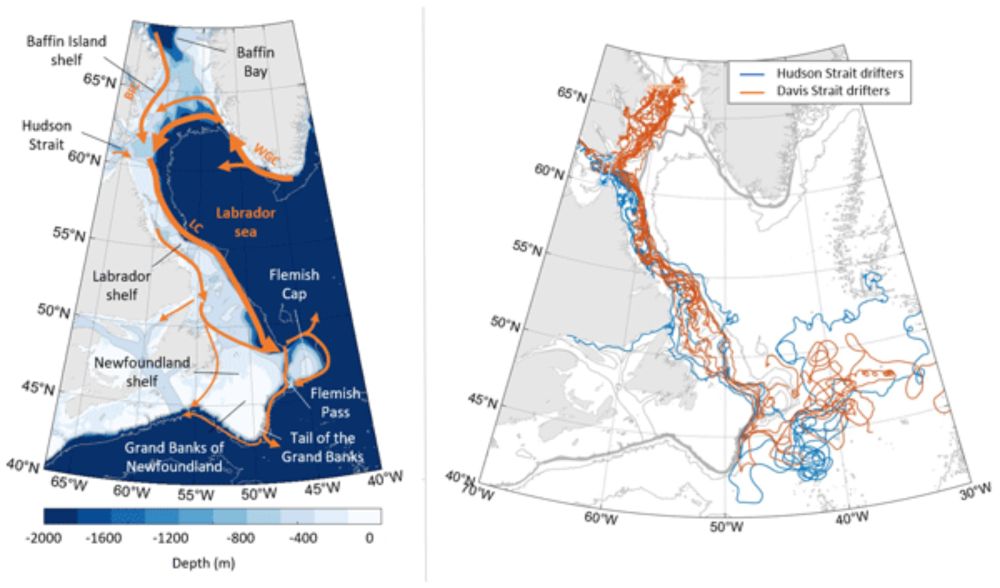Arthur Coquereau
@arthurcoquereau.bsky.social
42 followers
80 following
5 posts
I study ocean and climate variability using large ensembles 🌍🌍🌍🌍🌍 - AMOC aficionado - PhD Student at @lops_brest 🇫🇷
Posts
Media
Videos
Starter Packs
Reposted by Arthur Coquereau
Reposted by Arthur Coquereau
Nick Foukal
@foukalpoint.bsky.social
· Jan 29

Circulation of Baffin Bay and Hudson Bay waters on the Labrador shelf and into the subpolar North Atlantic
Abstract. In the coming decades increasing amounts of freshwater are predicted to enter the subpolar North Atlantic from Greenland and the Arctic. If this additional freshwater reaches the regions whe...
os.copernicus.org




